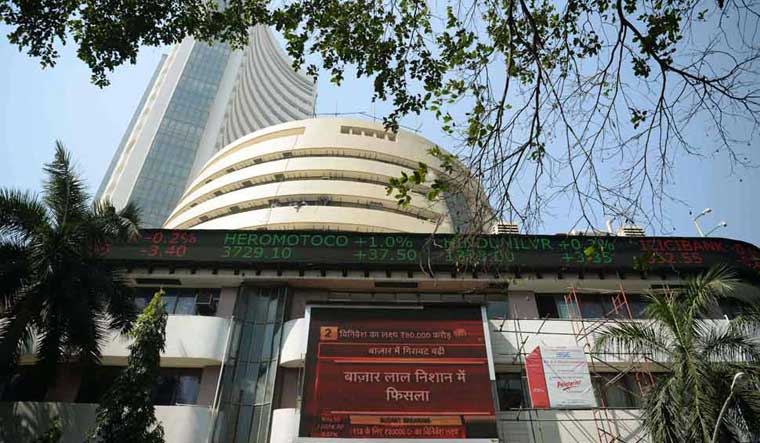It was a roller coaster ride for investors on the stock markets on Friday. A sharp fall in housing finance companies and huge selling pressure in stocks like Yes Bank, dragged the benchmark BSE Sensex down over 1,100 points or 3 per cent in intra-day trading. The markets recovered a lot of the losses in late trading, but still closed down 280 points or 0.8 per cent to 36,841.60 points. The wider NSE Nifty 50 index ended 91 points or 0.8 per cent lower at 11,143.10 points.
Shares of housing finance companies were among the major losers on Friday. Dewan Housing Finance Corporation Limited (DHFL) plunged almost 60 per cent during the day, to hit a 52-week low of Rs 246.25, before it recovered some what to close at Rs 351.55, still down more than 42 per cent.
According to some analysts, a fund house tried selling commercial papers (CP) of DHFL in the secondary market, but due to a tight liquidity in the system, it had to be sold at a higher yield. This news worried investors of not just DHFL but also several other housing finance companies, given that CPs are one of the source of funding of these companies.
“In bond yield hardening and liquidity drying scenario, the first segment that will come under pressure would be NBFCs in general and housing financing companies (HFC) in particular,” pointed out Jagannadham Thunuguntla, senior vice-president at Centrum Broking.
“The very nature of HFCs is to have negative asset-liability-mismatch (ALM) scenario wherein the liabilities (sources of financing) will have to be re-priced multiple times during the life of assets (housing loans). In an increasing interest rate scenario (such as current times), a higher proportion of shorter tenure funding against a higher proportion of long term assets, would be harmful,” he said.
Several HFCs and non-banking finance companies were under pressure; Indiabulls Housing Finance closed 8 per cent lower, LIC Housing Finance was down 5 per cent, Mahindra & Mahindra Financial Services fell 5 per cent and Bajaj Finance declined 4.6 per cent.
The problems at IL&FS, which has recently defaulted on some of its CPs, amid high debt levels, have also added to investors' concerns.
“The uncertainty surrounding future of IL&FS and therefore liquidity conditions are souring sentiment. Though these issues appear to be transient, they can be a source of significant volatility in the short term,” said Vinay Khattar, head, Edelweiss Investment Research.
Elsewhere, Yes Bank was the other major stock, which saw heavy selling on Friday. It ended down nearly 29 per cent at Rs 227.05 after several brokerages downgraded the stock and cut their target price after Reserve Bank of India reduced the term of MD and CEO Rana Kapoor till January 31, 2019, against the board's request for a three year term.
Sameer Bhise, an analyst at JM Financial said that Kapoor's presence at the helm of Yes Bank was an “all-encompassing phenomenon” and had a “strong influence” on the culture of the institution. He sees a greater likelihood of an external candidate taking charge at the private sector lender in the coming months.
“This phase of leadership transition will result into a slowdown in the bank’s industry-leading growth in our view. Yes Bank’s premium valuations historically were a clear derivative of its superior growth trajectory, ability to recover stressed assets (despite intermediate hiccups) and predictability of its earnings profile. In the current scenario, clarity on the aforementioned parameters is relatively lower than it was in the past,” the analyst said downgrading the stock to “hold” from “buy” and cutting target price to Rs 300 from Rs 450.
There has been pressure on stocks also from selling by foreign institutional investors. FIIs have pared their investments amid weakening rupee against the US Dollar, which has strengthened in the wake of interest rate hikes by the Federal Reserve. A surge in crude oil prices putting pressure on India's current account deficit, has also raised their concerns.
So far in September, FIIs have pulled out Rs 6,832 crore from equity markets, taking their overall equity outflows in 2018 to Rs 9,224 crore. They have also pulled out Rs 46,500 crore from India's debt markets, according to data from depositories.
Analysts expect markets may remain volatile in the near-term and feel investors should focus on investing in companies that have strong balance sheet and potential to deliver strong earnings growth.
“In the current scenario where there are very few places to hide, investors should focus on export-oriented sectors and zero-debt companies,” said Thunuguntla.



